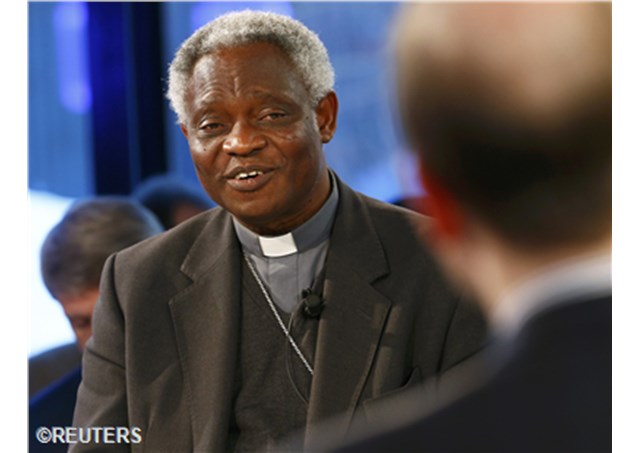
Card. Turkson to work with Global Fund on Equitable Access Initiative

(Vatican Radio) The head of the Pontifical Justice and Peace Council, Cardinal Peter Turkson, has been named as an expert advisor to a global health initiative aimed at providing care and prevention for the world’s poorest and most vulnerable people.
The programme, known as the Equitable Access Initiative, has been set up by the Global Fund to fight AIDS, TB and Malaria to support, in particular, so-called Middle Income Countries that account for 70% of the world’s poor.
The Ghanaian cardinal will join African and Asian government ministers and members of civil society to find ways of ensuring that quality health care can be provided in an just and equitable way to all members of society in these developing nations.
The Executive Director of the Global Fund, Dr. Mark Dybul, met with Cardinal Turkson on Wednesday to discuss the initiative. He also spoke with Philippa Hitchen about how the Equitable Access Initiative hopes to achieve its ambitious goals:
Listen:
Dybul says the way we classify countries now is to look at their gross national income and average that figure out, failing to look at what people experience in their daily lives….. “That’s not just”, he says, “so what we’re looking at is what kind of markers could we look at” to help move “towards a more just and equitable world”.
To classify as a low income country, Dybul notes, its average income has to be below $400 a year, while a middle income country has to be below $1.200 a year. He also points out that wealth is never evenly distributed, so this initiative is looking at other ways of measuring access to health care “to look at equal opportunities for all and then see how we can support them”.
The panel charged with drawing up these new frameworks, Dybul says, is chaired by the president of the African Development Bank and the former president of the World Trade Organisation. It includes many African and Asian government ministers and members of civil society, but “didn’t have anyone from the faith community”. Dybul notes that “in Africa, as much as 40% of health care is provided by the faith community and the Catholic Church is a huge piece of that”, while in India where Catholics number only around 2% of the population, the Church provides around 25% of all health care.
Dybul also insists that the Church not only provides health care, but rather “holistic care for people” and is usually found “deep in the community” enabling it to reach the most vulnerable and provide prevention services as well as care for the sick.
Amidst the current refugee crisis in Europe, Dybul says there is still commitment to funding as people understand that the “refugee problems can only be solved by equitable growth so people have opportunities in their own countries and don’t have to leave”.
| All the contents on this site are copyrighted ©. |


